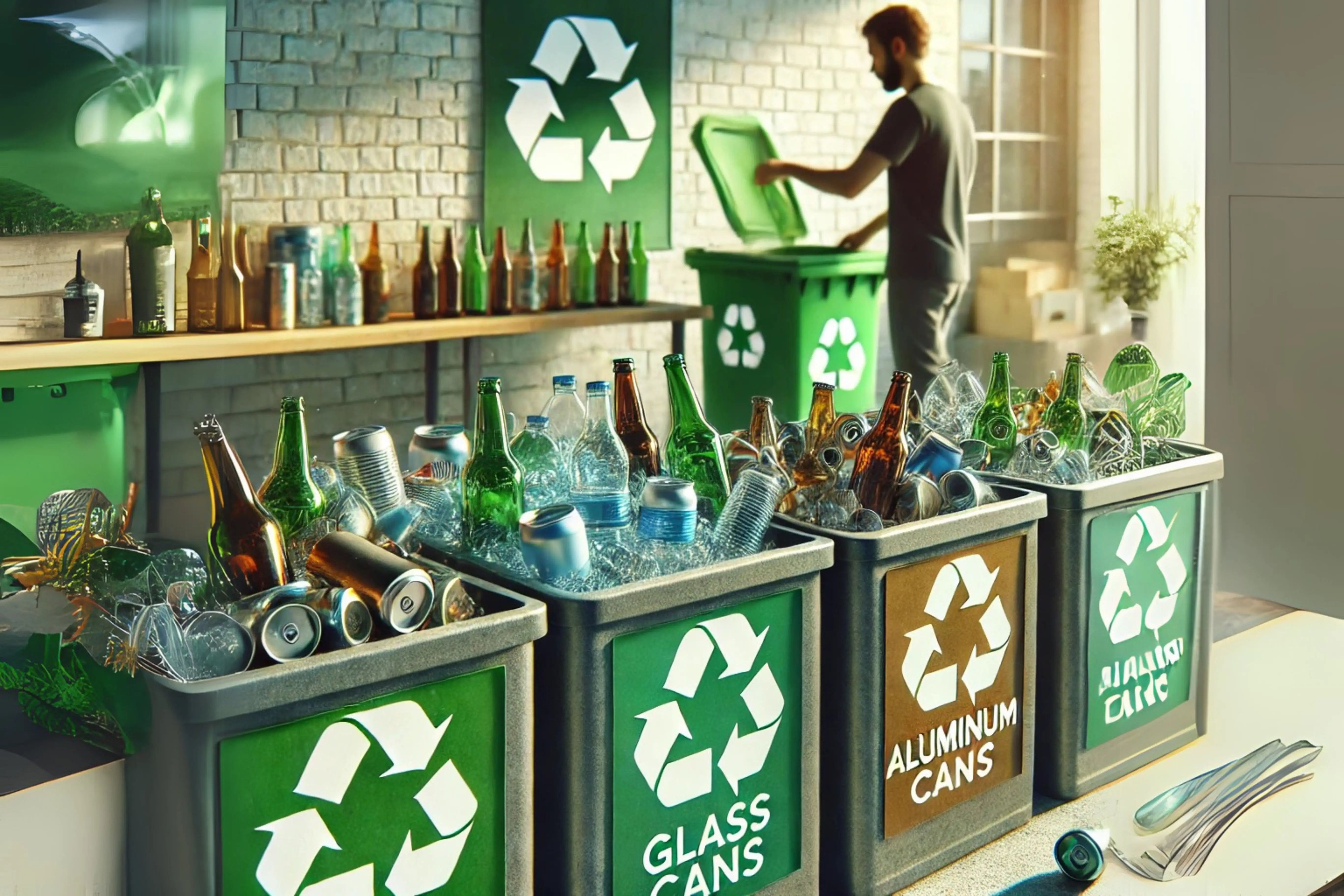The debate between glass and plastic packaging continues as businesses seek sustainable, cost-effective, and high-quality solutions for their products. Choosing the right packaging materials impacts product integrity, environmental footprint, and brand perception. Glass products offer distinct advantages over plastic containers, making them the superior choice for food products, personal care products, and pharmaceuticals. This article explores the benefits of glass packaging and why it is the best alternative to plastic.
Environmental Impact: Why Glass Wins
Sustainability & Recycling Rates
Glass has infinite recyclability, meaning it can be recycled endlessly without losing quality. Unlike plastic waste, which degrades over time and releases toxic chemicals, glass maintains its integrity in the recycling process. The average glass recycling rate is significantly higher in eco-conscious regions, contributing to a lower environmental impact. In contrast, recycling plastics often results in downcycling, where plastic products lose their original material quality.
Plastic Pollution & Raw Material Extraction
Plastic production relies on fossil fuels, including virgin resin and high-density polyethylene, leading to massive greenhouse gas emissions. The displacement of sand for silica sand extraction, a primary ingredient in glass making, has a comparatively lower impact on environmental pollution than plastic resins. Additionally, single-use plastic bottles and plastic cosmetic packaging contribute to post-consumer waste and plastic pollution, filling landfills and oceans with harmful debris.
Carbon Footprint & Energy Consumption
While the glass making process is an extremely heat-intensive process, plastic package production has a higher carbon impact due to raw material extraction, toxic emissions, and plastic pollution. Glass manufacturing processes, although requiring significant industrial energy, result in fewer long-term negative impacts than plastic production. The decision between glass or plastic should consider the sustainable impact of energy consumption in manufacturing processes.
Also read: Environmental Impacts of Recycling Glass Bottles
Product Integrity and Safety
Non-Toxic and Chemical-Free Packaging
Plastic materials, including polyethylene terephthalate (PET), release harmful chemicals over periods of time, particularly when exposed to heat. Glass storage containers, on the other hand, are free from toxic chemicals and provide an ideal choice for preserving food products, cosmetics industry goods, and pharmaceuticals.
UV Protection and Shelf Life
Glass bottles, especially amber and green glass containers, offer UV protection for sensitive products like essential oils and skincare formulas. This extends the products' shelf life, reducing product loss due to light degradation. Glass packaging maintains product integrity better than plastic packaging, making it a superior choice for high-quality goods.
Aesthetic and Branding Advantages
Premium Look and Consumer Preferences
Eco-conscious consumers prefer sustainable packaging with a premium appearance. Glass jars and glass bottles provide a high-end aesthetic that enhances branding in the personal care industries, beverage markets, and home fragrance sectors. The cosmetics industry, in particular, benefits from the high perceived value of glass packaging over plastic cosmetic packaging.
Customizability & Distinct Advantages
Glass packaging offers a huge range of custom design options, from embossing to unique molding processes. Unlike the common material used in plastic cosmetic packaging, glass can be tailored to match a brand’s identity and reinforce its commitment to sustainable alternatives.
Cost vs. Long-Term Value
Production Costs vs. Cost Savings
While glass production costs are initially higher due to the melting process and energy during production, the long-term cost savings outweigh these expenses. Glass is reusable, recyclable, and less likely to cause product loss, making it a sound practice for businesses prioritizing sustainability.
Freight Costs & Transportation Considerations
One of the main disadvantages of glass is its weight, which increases transportation costs. However, advancements in packaging technology and efficient shipping processes have reduced the cost advantage of plastic packaging. Many businesses find that the advantage in recyclability and superior product integrity justify the added freight costs.
Industry Use Cases: Who Benefits from Glass Packaging?
Food & Beverage Industry
Glass packaging is a sustainable choice for food products, offering superior preservation qualities and reducing health risks. Glass jars and bottles prevent contamination and preserve the original flavor, unlike plastic containers that absorb odors and leach toxic chemicals.
Beauty & Skincare Industry
Personal care products, including serums, essential oils, and lotions, require high-quality glass packaging for protection against temperature variations and UV exposure. The beauty industry benefits from the premium look and superior choice of glass over plastic.
Pharmaceuticals & Health Products
Medical-grade glass containers ensure the safe storage of sensitive products like medicines and supplements. Unlike plastic containers, which may break down over time, glass storage containers maintain product integrity.
Learn Why More Brands Are Switching to Glass Bottles in 2025.
Addressing Common Concerns About Glass
Fragility & Durability Improvements
Modern advancements in glass packaging technology, such as tempered and borosilicate glass, make glass products more durable. While fragile items like single-use glass may still pose challenges, overall, glass is a more resilient and sustainable alternative.
Weight & Transportation Costs
Glass has a higher density than plastic, which can increase transportation costs. However, bulk packaging solutions and strategic supply chain management mitigate these expenses, making glass an environmentally and financially viable choice.
Recycling Accessibility
Despite concerns about recycling rates, glass recycling rates continue to improve worldwide. Many regions now prioritize recycled glass in packaging materials to reduce environmental pollution and enhance sustainable packaging options.
Conclusion: The Smart Choice for Businesses
Switching to glass over plastic is not just an environmental decision—it’s a strategic business move. Glass offers a sustainable impact, superior product protection, and a premium aesthetic that attracts eco-conscious consumers. With growing consumer preferences for sustainable packaging and the increasing demand for an alternative to plastic, businesses that adopt glass packaging will gain a competitive edge. Choosing glass means investing in long-term cost savings, brand value, and a healthier planet.




